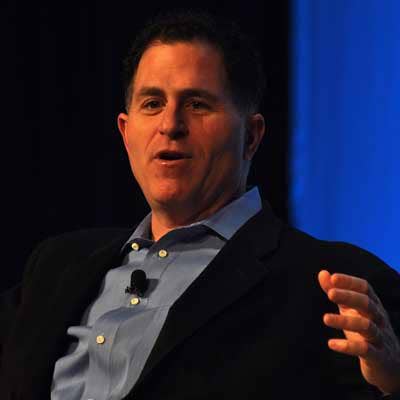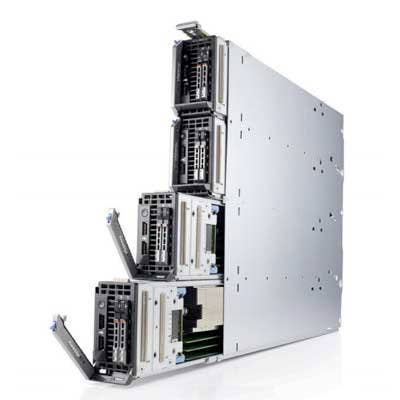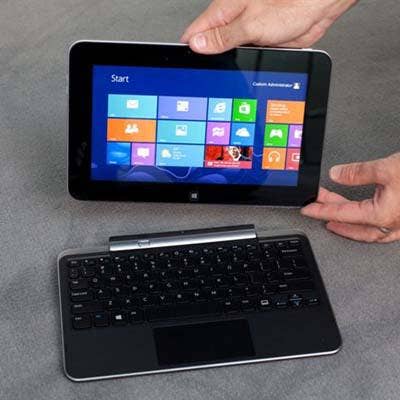10 Questions VARs Asked Michael Dell (And His Answers)

Q&A Session
Michael Dell spoke to more than 600 VAR and distributor executives and answered solution providers' questions Tuesday during a Q&A luncheon at Dell's Global Channel Partner Summit at Dell World in Austin, Texas. Here's a look at what he was asked and what he had to say about everything from recent acquisitions to mobility to the fiscal cliff.

New Way Of Thinking
Dell opened his address by noting how Dell has changed in the last several years to focus more on solutions than point products.
"Challenges and opportunities require new ideas, new ways of thinking. We made very significant acquisitions last year alone, investing $5 billion to add organizations like Quest Software, SonicWall and Wyse. Those are tremendous assets that sit on the epicenter of what Dell now has: a really, fantastic end-to-end portfolio."

Server Growth
Dell cited solution providers and other partners as the main reason why the company has become the No. 1 server brand in North America and Asia.
"We have a strong position in servers, storage and increasingly converged infrastructure. We're only 64,000 servers away from being No. 1 in the world," he said.

On Mobility
Dell was asked about Dell's mobile strategy. He mentioned his company's new XPS 10 and mobile device management, and he cited Windows 8 as a mobile driver, but didn't touch on smartphones except to say Dell applications will manage them.
"We are introducing here [at Dell World] a comprehensive portfolio of BYOD management solutions. Also Windows 8 is a tremendous answer for that challenge. Think of the organizations you serve. Just about all of them have Active Directory deeply embedded. The challenges companies face in working with other devices are significant. Take a product like our Latitude 10, it's a thin light tablet. It has all-day battery life, but also runs Microsoft Office, has a USB port, attaches to a 30-inch display and is fully compatible with all the other Microsoft stuff your customer has. We think that's a fantastic alternative to other products out there. On the smartphone side, we've got some strong systems management tools to manage those. Also, you'll see accelerated adoption of virtual clients as people adopt those devices."

What Should VARs Focus On?
Dell was asked what technologies and solutions small VARs should be looking at and focusing on and why. He mentioned cloud computing, converged infrastructure and security as three areas with high ROI for partners.
"Customers are on this journey from discrete infrastructure to virtual and cloud infrastructure. We rapidly built out converged solutions that enable you to help customers build their own private cloud. IT can be hybrid too and can run in a secured Dell environment, but we see it more as on-premise, and customers want to capture that [private cloud environment]," Dell said.

Identity Access And Management
Dell also said identity access and management is a hot area that VARs should look at.
"When you get into thousands and tens of thousands of users, you have lots of federated systems: on premise, cloud and off premise. There are lots of people in the organization that have different roles, and they might move around. There are regulations for who had access to what information. It's a nightmare to manage," Dell said. "You need an identity and access management solution. We have one in Quest. The deployment and implementation is a significant undertaking. It creates a lot of opportunities for partners."

Integration Plans
One attendee told Dell that partners and their customers are being told by competing vendors that Dell hasn't fully baked its integration plans for recent acquisitions such as SonicWall, Wyse and Quest Software and asked what partners should say to stay ahead of that conversation.
"The platforms you mention have tremendous scale and adoption, millions of users for each of them. We're integrating these together in a way where there's a 'better together' [message] across the Dell portfolio. If we haven't worked with you appropriately before on that, now's the time to do so," Dell said.

U.S. Manufacturing
Another VAR mentioned that Apple recently said it planned to spend $100 million to move some manufacturing jobs to the United States and whether Dell would do the same.
"We have some manufacturing here in the U.S. now, a percentage that probably is higher than Apple's. They said they invested $100 million. I'm not sure how much manufacturing they get for $100 million," Dell said. "One thing our country suffers from is a lack of industrial policy. What that means is the fundamental ingredients and materials are very capital intensive and require long patience and a lot of fortitude. The competitiveness in [many] industries has motivated them to put capital in the ground of other places. Other places set up competitive incentives. That's a big issue that affects competitiveness in this country vs. others."

The Fiscal Cliff
Dell was asked what precautions businesses should take regarding the upcoming "fiscal cliff" in Congress.
"We've taken some steps to prepare for this possibility. I'd like to think it [won't] actually occur, but you never know. Hopefully, a compromise is worked out. That's sort of the going assumption," Dell said. "This is only the beginning of addressing the real issue, which is our government is spending way more than it takes on and has for a long time. You know you can't do that for a long time. Unfortunately, that's what government has been doing. You can't keep doing it. That's a bigger issue beyond the fiscal cliff."

Developing Markets
Next, Dell was asked by a reseller from Columbia what his vision is for Latin American and other emerging markets.
"When I think of where the next 1 billion users come from, it's from new markets like those in South America, Southern Asia, Africa, the Middle East. Those places are where there is tremendous upside. One other thing we find there is organizations don’t have a legacy of older platforms. They can move immediately to new ways of doing things," Dell said. "We have a mainframe migration [strategy] where we help thousands of customers migrate onto an x86 environment. In emerging countries, this is not so much a problem. You can go right to virtual cloud infrastructure. We still see lots of growth in terms of GDP expansion in those countries, and IT will play a role in that."

Channel-Only Products
Finally, a VAR asked Dell if he sees the company developing any "channel-only" products that would not be sold directly to customers. Dell answered that Dell will always let the customer decide where they want to buy technology.
"The way we think about it is how do we get the broadest access to the largest number of customers any way we can. We don't have a preconceived idea about that. We have countries where we are 100 percent channel. If it felt like the right strategy in other countries or customers segments, [we'd do it], but I haven't seen that yet," Dell said. "There is still a lot of white space where there are lots of accounts. Our channel is not as high as it could be in servers. That's a big opportunity for partners."